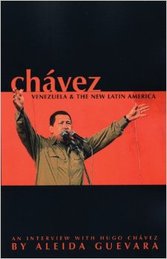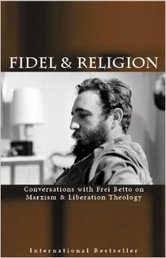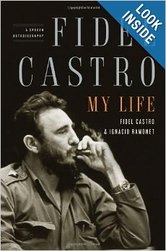About Rafael Correa
By Charles McKelvey
Rafael Correa, a product of the Ecuadorian lower middle class, is a Catholic who worked as a youth in missions of the Church among the poor. He studied economics at the university, and he earned master’s degrees at the University of Illinois, United States, and the University of Louvain, Belgium. Prior to his entrance into politics, he worked as a university professor.
Correa was 43 years old when he was named Minister of the Economy in 2005 in the government of Alfredo Palacio. As Minister of the Economy, he was critical of the International Monetary Fund. He promised to divert funds from petroleum more to social costs and less to the payment of the external debt. He asserted that he will seek a renegotiation of the debt, and that the government would submit a proposed Free Trade Agreement with the United States to a popular consultation. With these proclamations, he became a favorite of the middle class. There emerged conflicts between Correa’s perspective and the thinking of the government of Palacio, causing him to resign his post as Minister.
Correa proceeded to establish Nation Alliance, which decided to enter only the presidential elections and not congressional elections, since Nation Alliance was proposing the immediate formation of a Constitutional Assembly, which would lead to a new constitutional foundation for new elections. In the first round of the 2006 elections, Correa received 23% of the vote, finishing second among 13 candidates, behind Noboa, who received 26%. Nation Alliance had mostly a social base in the middle and upper-middle classes and had ties to social foundations and non-governmental organizations. In the first round, Correa received a low percentage of votes from the poor sectors, as a result of the fact that he did not have personal history of involvement and participation in the popular mass organizations or the political parties of the left.
The campaign for the second round elections between Correa and Noboa began with Correa trailing, but in the months before the elections, Correa received the endorsements of labor, peasant, and indigenous organizations as well as some of the political parties, which viewed him as clearly a better option than Noboa. During the presidential campaign, Noboa had the support of the organizations of the Ecuadorian national bourgeoisie as well as the government of the United States and transnational companies. Noboa supported the signing of a Free Trade Agreement with the United States. He proposed changes in the law and in the tax structure that would strengthen foreign investment and would facilitate access of international capital to Ecuadorian natural resources, including petroleum. He favored privatization, including those sectors that provided vital human needs to the population. He asserted that Ecuador ought to break relations with Cuba and Venezuela.
For his part, Correa during the campaign for the second round elections declared that he would renegotiate the Ecuadorian external debt with the international finance agencies, basing the negotiation on conditions established by the Ecuadorian state, and not on conditions laid down by the international finance agencies. He declared that his government would not sign a Free Trade Agreement with the United States, and that instead of an economic integration with the United States based on “free commerce,” Ecuador ought to be oriented toward an economic and social integration with Latin America, seeking to strengthen ties with ALBA, MERCOSUR, Venezuela, and Cuba. He also declared that his government would not renew the agreement with the United States for the use of the Ecuadorian Air Force Base in the city of Manta by the U.S. military, when this accord terminates during 2009. And he declared that he would not permit the country to participate in the Plan Colombia of the United States. In regard to internal policy, Correa asserted that he would convoke a Constitutional National Assembly that would be able to establish alternative structures that would establish new mechanisms for the effective participation of the citizens in the public decisions of importance for the country. The Constitutional Assembly ought to be formed by the various sectors of the country, including representatives of workers, peasants, students, and retired persons.
Correa defeated Noboa in the presidential elections in the second round with 59% of the vote, and he assumed the presidency on January 15, 2007. That same day, he initiated the steps for a popular referendum on a Constitutional Assembly. This was tenaciously resisted by the sectors of the right. The National Congress, in which Nation Alliance did not have representation, tried to block the referendum, but the Electoral Court, taking into account the strong popular sentiment for a referendum, ruled that it should be held. In March 2007, a popular referendum approved the convocation of a constitutional assembly. On September 30, elections to the Constitutional Assembly were held, in which 70% of the voters supported candidates that shared the political-economic project of Correa, and Nation Alliance won 80 of the 130 seats in the Constitutional Assembly. A new Constitution was developed by the Assembly, and it was approved in a popular referendum.
Under the new Constitution, elections for President, Vice-President, and the Legislative Assembly (to replace the previously called National Congress) were held on April 26, 2009. Correa won the elections on the first round, with 51.94% of the votes, far ahead of Lucio Gutierrez with 28.24% and Álvaro Noboa with less than 8%. The Nation Alliance attained an ample victory in the elections for Legislative Assembly, and the Pachakutik movement, the Democratic Popular Movement, the Socialist Party also won strong representation, giving overwhelming control of the Legislative Assembly to the newly formed non-traditional parties of the Left.
Rafael Correa has written, “For a long time in Ecuador an economic policy has been applied that basically serves capital, especially financial capital.” This policy distorts the fundamental concepts of the science of economics, reducing economic stabilization simply to the control of inflation, and orienting economic policy to maximize payment of the public debt. The results of this policy are clear: “Inequity had increased and unemployment has doubled compared to the figures at the beginning of the 1990s, in spite of the massive emigration of compatriots that has occurred in recent years.”
These economic policies, Correa maintains, serve the particular interests of the Ecuadorian national bourgeoisie, which adopts an antidemocratic and deceptive attitude in order to benefit themselves. At the same time, the policies serve the interests of international capital and the international finance agencies, and accordingly, they undermine the democratic structures and the sovereignty of Ecuador.
Correa proposes an economic policy that seeks true sovereignty and that intends “to liberate the country from the atavism and the powerful national and international interests that dominate, with a clear preferential option for the poorest and weakest, and giving priority to hunger over capital.”
Correa seeks to construct in Ecuador “Socialism for the XXI Century,” which he defines as socialism “applied to the particularities of Ecuador.” Correa maintains that Socialism for the XXI Century has important points of coincidence with the scientific socialism of Marx and Engels, including the principle that “it is the people who ought to command, and not the market. The market ought to be the slave, and not the master.” And another point of coincidence with classic socialism is “the importance of collective action.”
But Correa asserts that socialism for the XXI century is different from classic socialism. First, while classic socialism “sought state ownership of all the means of production,” Ecuadorian socialism for the XXI century seeks “state ownership of the means of production that are strategic for the economy of the nation, and therefore cannot be in private hands.”
Secondly, classic socialism had a concept of development not very different from that of capitalism, in that it utilized “the same concept of industrial development and growth in production.” But socialism for the XXI century seeks to formulate and practice an alternative model, based on the concept of sustainable development.
Third, socialism for the XXI century expresses itself in various forms, without the model of one country being replicated in another. “We ought to speak of principles, and not of models. In this classic socialism was arrogant.”
In addition to the significant step of the formation of a new Constitution that facilitates representation of the people in the political process, the Correa government has adopted a number of measures. It has renegotiated external debt payments on the basis of the principal that it will make payment only on debt that was legitimately contracted, with the result that for the first time, social spending has exceed payment of external debts. It has stimulated investments in strategic industries, such as the hydroelectric industry, petroleum refineries, and the transportation infrastructure. It has provided incentives to national production, with the intention of responding to the food needs of the population. It has nationalized property poorly utilized. It has not renewed the agreement for the U.S. military base in Manta. And in 2009, it began to participate in ALBA.
Correa was 43 years old when he was named Minister of the Economy in 2005 in the government of Alfredo Palacio. As Minister of the Economy, he was critical of the International Monetary Fund. He promised to divert funds from petroleum more to social costs and less to the payment of the external debt. He asserted that he will seek a renegotiation of the debt, and that the government would submit a proposed Free Trade Agreement with the United States to a popular consultation. With these proclamations, he became a favorite of the middle class. There emerged conflicts between Correa’s perspective and the thinking of the government of Palacio, causing him to resign his post as Minister.
Correa proceeded to establish Nation Alliance, which decided to enter only the presidential elections and not congressional elections, since Nation Alliance was proposing the immediate formation of a Constitutional Assembly, which would lead to a new constitutional foundation for new elections. In the first round of the 2006 elections, Correa received 23% of the vote, finishing second among 13 candidates, behind Noboa, who received 26%. Nation Alliance had mostly a social base in the middle and upper-middle classes and had ties to social foundations and non-governmental organizations. In the first round, Correa received a low percentage of votes from the poor sectors, as a result of the fact that he did not have personal history of involvement and participation in the popular mass organizations or the political parties of the left.
The campaign for the second round elections between Correa and Noboa began with Correa trailing, but in the months before the elections, Correa received the endorsements of labor, peasant, and indigenous organizations as well as some of the political parties, which viewed him as clearly a better option than Noboa. During the presidential campaign, Noboa had the support of the organizations of the Ecuadorian national bourgeoisie as well as the government of the United States and transnational companies. Noboa supported the signing of a Free Trade Agreement with the United States. He proposed changes in the law and in the tax structure that would strengthen foreign investment and would facilitate access of international capital to Ecuadorian natural resources, including petroleum. He favored privatization, including those sectors that provided vital human needs to the population. He asserted that Ecuador ought to break relations with Cuba and Venezuela.
For his part, Correa during the campaign for the second round elections declared that he would renegotiate the Ecuadorian external debt with the international finance agencies, basing the negotiation on conditions established by the Ecuadorian state, and not on conditions laid down by the international finance agencies. He declared that his government would not sign a Free Trade Agreement with the United States, and that instead of an economic integration with the United States based on “free commerce,” Ecuador ought to be oriented toward an economic and social integration with Latin America, seeking to strengthen ties with ALBA, MERCOSUR, Venezuela, and Cuba. He also declared that his government would not renew the agreement with the United States for the use of the Ecuadorian Air Force Base in the city of Manta by the U.S. military, when this accord terminates during 2009. And he declared that he would not permit the country to participate in the Plan Colombia of the United States. In regard to internal policy, Correa asserted that he would convoke a Constitutional National Assembly that would be able to establish alternative structures that would establish new mechanisms for the effective participation of the citizens in the public decisions of importance for the country. The Constitutional Assembly ought to be formed by the various sectors of the country, including representatives of workers, peasants, students, and retired persons.
Correa defeated Noboa in the presidential elections in the second round with 59% of the vote, and he assumed the presidency on January 15, 2007. That same day, he initiated the steps for a popular referendum on a Constitutional Assembly. This was tenaciously resisted by the sectors of the right. The National Congress, in which Nation Alliance did not have representation, tried to block the referendum, but the Electoral Court, taking into account the strong popular sentiment for a referendum, ruled that it should be held. In March 2007, a popular referendum approved the convocation of a constitutional assembly. On September 30, elections to the Constitutional Assembly were held, in which 70% of the voters supported candidates that shared the political-economic project of Correa, and Nation Alliance won 80 of the 130 seats in the Constitutional Assembly. A new Constitution was developed by the Assembly, and it was approved in a popular referendum.
Under the new Constitution, elections for President, Vice-President, and the Legislative Assembly (to replace the previously called National Congress) were held on April 26, 2009. Correa won the elections on the first round, with 51.94% of the votes, far ahead of Lucio Gutierrez with 28.24% and Álvaro Noboa with less than 8%. The Nation Alliance attained an ample victory in the elections for Legislative Assembly, and the Pachakutik movement, the Democratic Popular Movement, the Socialist Party also won strong representation, giving overwhelming control of the Legislative Assembly to the newly formed non-traditional parties of the Left.
Rafael Correa has written, “For a long time in Ecuador an economic policy has been applied that basically serves capital, especially financial capital.” This policy distorts the fundamental concepts of the science of economics, reducing economic stabilization simply to the control of inflation, and orienting economic policy to maximize payment of the public debt. The results of this policy are clear: “Inequity had increased and unemployment has doubled compared to the figures at the beginning of the 1990s, in spite of the massive emigration of compatriots that has occurred in recent years.”
These economic policies, Correa maintains, serve the particular interests of the Ecuadorian national bourgeoisie, which adopts an antidemocratic and deceptive attitude in order to benefit themselves. At the same time, the policies serve the interests of international capital and the international finance agencies, and accordingly, they undermine the democratic structures and the sovereignty of Ecuador.
Correa proposes an economic policy that seeks true sovereignty and that intends “to liberate the country from the atavism and the powerful national and international interests that dominate, with a clear preferential option for the poorest and weakest, and giving priority to hunger over capital.”
Correa seeks to construct in Ecuador “Socialism for the XXI Century,” which he defines as socialism “applied to the particularities of Ecuador.” Correa maintains that Socialism for the XXI Century has important points of coincidence with the scientific socialism of Marx and Engels, including the principle that “it is the people who ought to command, and not the market. The market ought to be the slave, and not the master.” And another point of coincidence with classic socialism is “the importance of collective action.”
But Correa asserts that socialism for the XXI century is different from classic socialism. First, while classic socialism “sought state ownership of all the means of production,” Ecuadorian socialism for the XXI century seeks “state ownership of the means of production that are strategic for the economy of the nation, and therefore cannot be in private hands.”
Secondly, classic socialism had a concept of development not very different from that of capitalism, in that it utilized “the same concept of industrial development and growth in production.” But socialism for the XXI century seeks to formulate and practice an alternative model, based on the concept of sustainable development.
Third, socialism for the XXI century expresses itself in various forms, without the model of one country being replicated in another. “We ought to speak of principles, and not of models. In this classic socialism was arrogant.”
In addition to the significant step of the formation of a new Constitution that facilitates representation of the people in the political process, the Correa government has adopted a number of measures. It has renegotiated external debt payments on the basis of the principal that it will make payment only on debt that was legitimately contracted, with the result that for the first time, social spending has exceed payment of external debts. It has stimulated investments in strategic industries, such as the hydroelectric industry, petroleum refineries, and the transportation infrastructure. It has provided incentives to national production, with the intention of responding to the food needs of the population. It has nationalized property poorly utilized. It has not renewed the agreement for the U.S. military base in Manta. And in 2009, it began to participate in ALBA.





